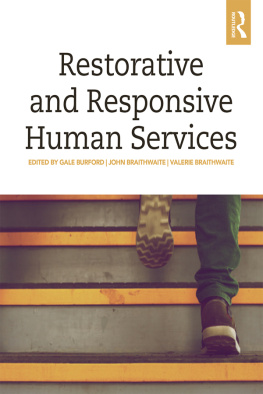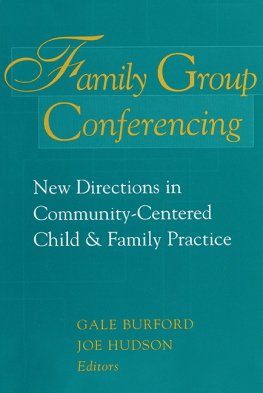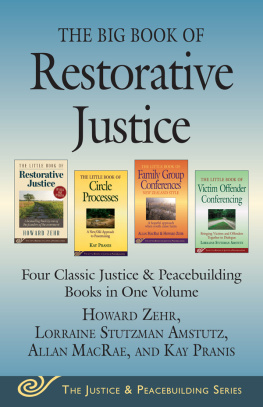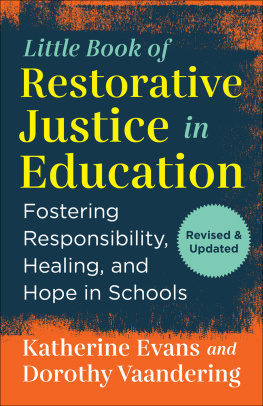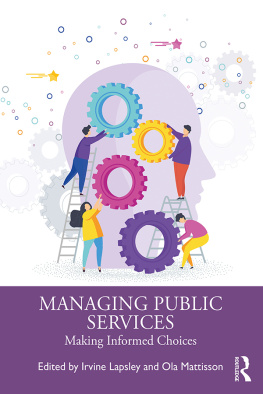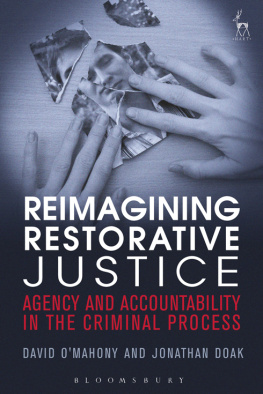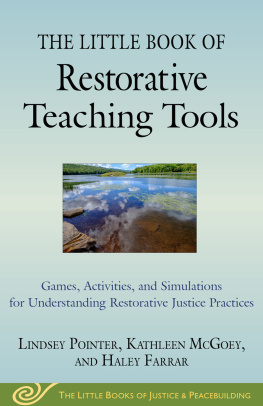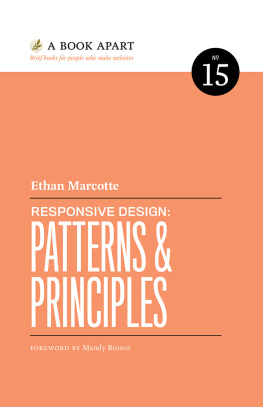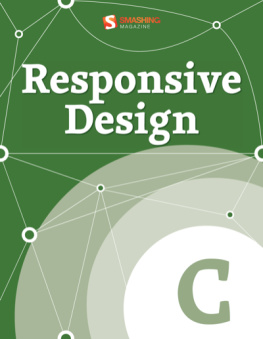Rules against violence, bullying, child abuse, and sexual assault too often fail to improve safety while escalating the numbers of individuals incarcerated, separated from their families, schools, and chances for learning and starting anew. Restorative justice methods make inroads but remain marginal or even coopted by dominant and punitive approaches, but the authors of this book demonstrate how prevention strategies and rigorous efforts to strengthen relationships and communities can better protect individuals and communities from violence and other harms. Drawing lessons from settings as diverse as a nuclear power plant meltdown, auto industry cheating on emissions, and a sports stadium riot, to foster care crises and campus sexual assault and harassment, this book shows the elements in lasting solutions that draw on knowledge and build capacities of those most affected and the concentric circles of communities, professionals, and flexible systems focused on fixing problems rather than stigmatizing individuals.
Martha Minow, A.B., Ed.M., J.D.
Author, Between Vengeance and Forgiveness
300th Anniversary University Professor, Harvard University
This groundbreaking collection from the leading theorists of responsive regulation and restorative justice offers an insightful investigation of alternatives to the prevailing punitive authoritarian approach to human services and regulation. Contributors offer impressive evidence of the benefit of an empowerment relational approach to human services as well as the ability of ordinary citizens to, in turn, demand state and market accountability whether on behalf of nursing home residents, farmworkers, or child-welfare involved African American mothers. The book places restorative justice and responsive regulation in dialogue and examines critically overlapping goals as well as divergence. It is a must-read not only for human service providers and policy makers, but for all who seek justice and who believe in the capacity of communities to create social change.
Donna Coker, B.S.W., M.S.W., J.D.
Professor of Law
University of Miami Law School
Restorative justice is badly underestimated when it is portrayed as simply another criminal justice alternative. This remarkable conversation of voices from a range of contexts and perspectives vividly illustrates the true potential of restorative justice as a holistic vision of change, not just in the justice system, but throughout the policy sphere. This inspirational collection is exactly what is needed at this dangerous historical moment we find ourselves in.
Shadd Maruna, Ph.D.
Professor of Criminology
School of Social Sciences, Education & Social Work
Queens University Belfast, Northern Ireland
This stimulating collection of essays charts the path toward a more comprehensive integration of the principles of restorative justice and responsive regulation, to the mutual benefit of both endeavours and with a particular focus on its implications for the human services sector. This book will be of keen interest to scholars, policymakers, regulators, community activists and restorative practitioners.
Professor Chris Marshall, B.A., B.D., M.A., Ph.D.
The Diana Unwin Chair in Restorative Justice
Victoria University of Wellington New Zealand
Author All Things Reconciled: Essays on Restorative Justice,
Religious Violence and the Interpretation of Scripture
This timely book makes an important intervention into contemporary human services, which globally are struggling to respond to calls for equity and inclusion from within settings now fundamentally defined by neoliberal policies and practices. Provocatively, it leans into rather than away from the contested question of regulation, offering a richly buttressed argument not for abandoning regulation, but for recapturing it. What emerges is a compelling, detailed, and practically useful case for nuanced hybridity: responsive and restorative institutional scaffolds, centered in human relationships, accountable to stakeholders, and firmly grounded in democratic values, community imperatives, and social justice commitments.
Susan P. Kemp, B.A., C.Q.S.W., M.A., Ph.D.
Charles O. Cressey Endowed Professor, University of Washington School of Social Work
Professor, University of Auckland, School of Counselling, Human Services and Social Work
Restorative and Responsive Human Services
In Restorative and Responsive Human Services, Gale Burford, John Braithwaite and Valerie Braithwaite bring together a distinguished collection providing rich lessons on how regulation in human services can proceed in empowering ways that heal and are respectful of human relationships and legal obligations. The human services are in trouble: combining restorative justice with responsive regulation might redeem them, renewing their well-intended principles. Families provide glue that connects complex systems. What are the challenges in scaling up relational practices that put families and primary groups at the core of health, education and other social services?
This collection has a distinctive focus on the relational complexity of restorative practices. How do they enable more responsive ways of grappling with complexity than hierarchical and prescriptive human services? Lessons from responsive business regulation inform a reimagining of the human services to advance wellbeing and reduce domination. Readers are challenged to re-examine the perverse incentives and contradictions buried in policies and practices. How do they undermine the capacities of families and communities to solve problems on their own terms?
This book will interest those who harbor concerns about the creep of domination into the lives of vulnerable citizens. It will help policy makers and researchers to re-focus human services to fundamental outcomes at the foundation of sustainable democracies.
Gale Burford is Emeritus Professor of Social Work, University of Vermont, and currently a visiting scholar of restorative justice at Vermont Law School. Until his retirement from University of Vermont in 2014, he was Director of the University-State Child Welfare Training Partnership and Principal Investigator for the Vermont Community Justice Consortium. Gale first came to university teaching and research in 1981 at Memorial University of Newfoundland with experience as a foster and group home parent, caseworker and social work practitioner, trainer, supervisor, manager and senior administrator in services for children, young people and their families. He has taught, carried out research and program evaluation activities and consulted with programs internationally mainly on social work in statutory settings including child protection, youth justice and corrections. His best known research focuses on the use of family engagement and restorative approaches at the intersection of child protection and interpersonal violence.
John Braithwaite is Distinguished Professor at RegNet (the School of Regulation and Global Governance) at the Australian National University. Since 2004 he has led a comparative project called Peacebuilding Compared (see johnbraithwaite.com). He also works on business regulation and the crime problem. His best known research is on the ideas of responsive regulation and restorative justice. Braithwaite has been active in the peace movement, the politics of development, the social movement for restorative justice, the labor movement and the consumer movement, around these and other ideas for 50 years in Australia and internationally.
Valerie Braithwaite is an interdisciplinary scholar and professor of regulatory studies in RegNet (School of Regulation and Global Governance), Australian National University. With a disciplinary background in psychology, her work focuses on how relationships of hope, trust and distrust ebb and flow between regulators and regulatees with often unexpected outcomes for society. Her work encompasses a diverse range of fields including human services. On behalf of the Australian Government, Braithwaite has conducted reviews of regulation in higher education and vocational education. Her most recent report All Eyes on Quality addresses how regulation can build learning communities and incentivize high performance and innovation.

